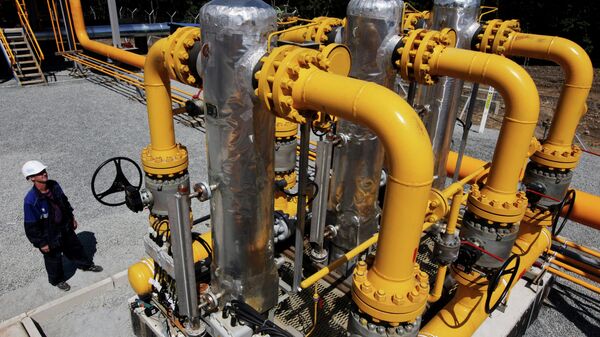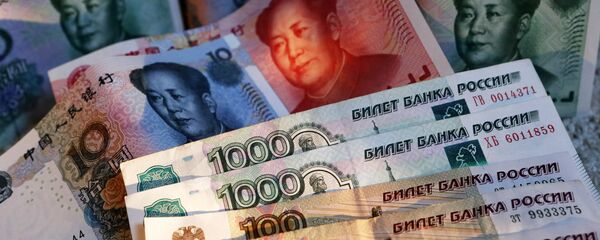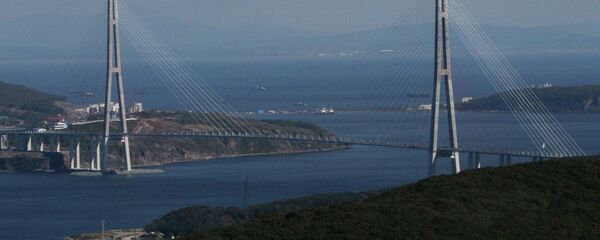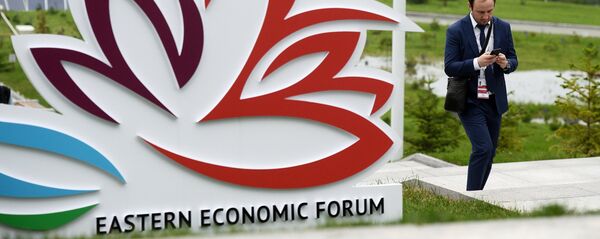Sputnik: There's been a lot of volatility in the markets recently because of trade wars, tariffs; because of because of political uncertainty. If you look at the world map, what are the areas in which we now see most changes occurring? What can we expect in the coming years?
David Cruickshank: I think it's fair to say that if you look at the world on a macro-level, world GDP is still growing, it's still at a good rate and our forecasts at Deloitte show that it will continue to grow at a good rate next year as well. Clearly, trade wars are bad for world growth because they restrict supplies, they limit opportunities. But at the moment, the growth engine in all parts of the world, so the Americas, Europe, Russia and, of course, Asia, they're all growing at a rate that compensates for trade wars so far.
Longer-term, it's true, countries like China and India, where per capita incomes are still a lot lower than in other parts of the world, their growth has got a long way to go, as more people enter middle class, there's more consumption and so on, and so as a proportion of the whole, their countries will take up a bigger proportion of the world economy in times to come. It's not in the near future but in the medium term.
READ MORE: Why Foreign Investors are Fleeing US Securities, Turning to Gold, Chinese Bonds
Sputnik: Is there any influence of alliances, economic alliances, and political alliances, on the growth process? Can you see that occurring now?
David Cruickshank: I think that the more alliances there are, the more free trade there is, the greater the growth is, the greater the prospects for humankind. There are research papers over history written about this going right back to Adam Smith and "The Wealth of Nations," that people should specialize in doing what they're good at and then trade.
Again, all the evidence around the world is that it's benefited consumers enormously around the world, who now have access to products and service at a fraction of the price they did a number of years ago. So while there are challenges to some of the old alliances, I think new ones are emerging and I think, generally, there's still a view in the world that trade is good. I think some countries think that the arrangement should be changed, but they still believe that trade is good.
Sputnik: Fortune magazine recently named Deloitte as one of the key players on its "Change the world" list; what are the company's main priorities at the moment? What are your plans in the years to come? Maybe some plans regionally here in the Far East, some plans in Russia, some plans in Asia; what are they?
David Cruickshank: Let me just talk about the firm overall and then I'll talk about the Fortune and then more locally in Russia.
For the firm overall, we've positioned ourselves to anticipate that markets are changing very dramatically. So, 4.0, the merger of the physical and technology, we're seeing that in every aspect of our business and the huge, huge changes in the way that our clients are operating and that we're operating to respond to that. And that involves big challenges for training our people.
I think the Fortune award, we are very proud of it, partly it is a reflection of the investments that we're making for retraining our people, training our clients around 4.0, but also we feel we have a commitment to extend the benefit of that training to the wider communities in which we operate.
READ MORE: Investors, It's Time to Look at the Russian Far East!
We have a program called "50 million futures," where we've charged ourselves that by 2025, we will have impacted the lives of 50 million people who currently don't have access to technology, training and so on, but using our skills and alliances to help with that, because training is in our DNA, so in a way it's an easy thing for us to do. Our people like doing it, but we feel we can have some big impact.
I think more generally on that, I think it is incumbent on business in a period of huge change to use their resources to assist populations and workforces deal with that change because for some people it's quite scary and workplaces have changed so quickly.
Sputnik: You mentioned education and Deloitte's universities several times; in your opinion, what will be the careers of the future? Perhaps areas where we will see the most growth, knowing that people will have to do a lot of lifetime learning; what are the careers?
David Cruickshank: I think you're right your question, you know. When I joined our firm, which was in 1979, there was an expectation then that most people who trained in a firm like ours would work in the same sort of area throughout their entire career, but the people who are joining us now don't assume that.
They assume that they will have a series of careers within their career and they do expect us to create the platforms and create the training and reskilling necessary to do that and to really have an environment where the lifelong learning and that culture of learning to deal with change is something that's valued and is sponsored within the organization.
So yes, I think we have high expectations of our people, they absolutely know coming into the workforce now whether it's the millennials or generation Z, they know there's going to be a lot of change; they look to us to help them with that change.
READ MORE: Deloitte CIS: Fourth Industrial Revolution Will Change Employment Practices
Sputnik: Do you know what to do with the millennials in terms of education and with generation Z? Do they require other forms of education? Do they require distance learning, e-learning, other types of courses?
David Cruickshank: We use every medium, so Deloitte universities around the world they are physical buildings. We do a huge amount of our training and learning by e-learning as well. We have discussion forums with smaller groups, so we use every medium for learning because we don't find that one works alone. I think our people are very up for that.
They tell us very readily where they feel they're not being challenged enough, when they're not learning enough and they have a high expectation that they should be doing new and interesting stuff all the time, so they're challenging us all the time to give them more challenging work and more exciting work, but they also want training for it and they also want to be well paid for it too. So they want a lot, but that's good because I think it keeps us challenged on the way we do things.
Views and opinions expressed in this article are those of David Cruickshank and do not necessarily reflect those of Sputnik.






